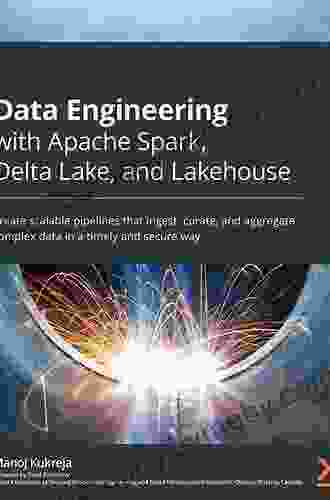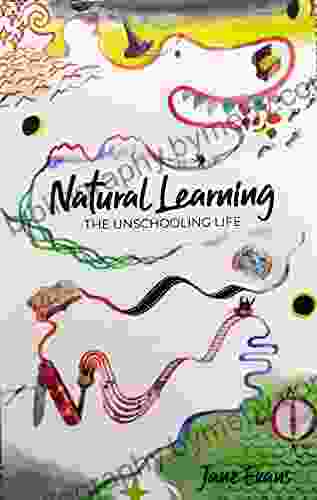Unleash the Power of Data with Scalable Pipelines: Ingest, Curate, and Aggregate Complex Data

In today's digital landscape, organizations are amassing vast amounts of data from diverse sources. This data holds immense potential but can also be overwhelming and challenging to manage. To unlock the full value of your data, it's crucial to have robust pipelines that can effectively ingest, curate, and aggregate it.
This comprehensive article will guide you through the essential elements of scalable data pipelines, arming you with the knowledge to efficiently process and leverage complex data.
Scalable data pipelines are the backbone of efficient data management. They enable you to ingest data from various sources, transform it to meet your specific needs, and store it in a structured format for analysis and decision-making. Here are the key steps involved:
4.4 out of 5
| Language | : | English |
| File size | : | 54566 KB |
| Text-to-Speech | : | Enabled |
| Screen Reader | : | Supported |
| Enhanced typesetting | : | Enabled |
| Print length | : | 480 pages |
The first step is to ingest data from diverse sources into your pipeline. This can be achieved through a variety of methods, including:
- Batch ingestion: Periodically loading large volumes of data from databases, files, or other systems.
- Real-time ingestion: Continuously streaming data from sources such as sensors, logs, or social media platforms.
- API-based ingestion: Using application programming interfaces (APIs) to retrieve data from third-party applications or services.
Once data is ingested, it's crucial to cleanse and prepare it for analysis. This involves processes such as:
- Data cleaning: Removing duplicate, incomplete, or inaccurate data points.
- Data transformation: Converting data into a consistent format that meets your specific requirements.
- Data normalization: Standardizing data values to ensure compatibility and comparability.
Finally, to gain meaningful insights from your data, it's important to aggregate it from multiple sources. This involves:
- Joining data: Combining data from various tables or datasets based on common keys.
- Aggregation functions: Summarizing or grouping data using functions such as sum, average, or maximum.
- Window functions: Performing calculations over a specified time period or range of data.
Implementing scalable data pipelines offers numerous benefits for organizations:
- Improved data quality: Accurate and consistent data ensures reliable analysis and decision-making.
- Increased efficiency: Automated pipelines reduce manual effort and improve data processing speed.
- Enhanced scalability: Scalable pipelines can handle growing data volumes and changing data sources.
- Real-time insights: With real-time ingestion, organizations can respond to changes in data in near real-time.
- Cost optimization: Optimized pipelines reduce storage and compute costs by efficiently storing and processing data.
Numerous organizations have successfully implemented scalable data pipelines to unlock the value of their data. Here are two notable case studies:
Case Study 1: E-commerce Company
An e-commerce company faced challenges with managing data from multiple sources, including Free Download history, product information, and customer feedback. By implementing a scalable pipeline, they were able to ingest, curate, and aggregate this data, resulting in:
- Improved product recommendations based on customer behavior
- Enhanced customer segmentation for targeted marketing campaigns
- Increased sales by identifying cross-selling opportunities
Case Study 2: Research University
A research university needed to process and analyze large volumes of research data from scientific experiments. They designed a scalable pipeline that incorporated real-time data ingestion, automated data cleaning, and advanced aggregation techniques. This led to:
- Accelerated research projects due to faster data analysis
- Discovery of new patterns and insights in the research data
- Increased collaboration and knowledge sharing among researchers
Building scalable data pipelines is essential for organizations to effectively manage and leverage the vast amounts of complex data they collect. By ingesting, curating, and aggregating this data, organizations can improve data quality, increase efficiency, and gain valuable insights for informed decision-making.
Implementing data pipelines requires careful planning, technical expertise, and constant optimization. As data continues to grow in volume and complexity, scalable pipelines will become increasingly critical for organizations to achieve data-driven success.
4.4 out of 5
| Language | : | English |
| File size | : | 54566 KB |
| Text-to-Speech | : | Enabled |
| Screen Reader | : | Supported |
| Enhanced typesetting | : | Enabled |
| Print length | : | 480 pages |
Do you want to contribute by writing guest posts on this blog?
Please contact us and send us a resume of previous articles that you have written.
 Book
Book Novel
Novel Page
Page Chapter
Chapter Text
Text Story
Story Genre
Genre Reader
Reader Library
Library Paperback
Paperback E-book
E-book Magazine
Magazine Newspaper
Newspaper Paragraph
Paragraph Sentence
Sentence Bookmark
Bookmark Shelf
Shelf Glossary
Glossary Bibliography
Bibliography Foreword
Foreword Preface
Preface Synopsis
Synopsis Annotation
Annotation Footnote
Footnote Manuscript
Manuscript Scroll
Scroll Codex
Codex Tome
Tome Bestseller
Bestseller Classics
Classics Library card
Library card Narrative
Narrative Biography
Biography Autobiography
Autobiography Memoir
Memoir Reference
Reference Encyclopedia
Encyclopedia Gerald Clarke
Gerald Clarke Gavin Larsen
Gavin Larsen G R S Mead
G R S Mead Gaynor Lea Greenwood
Gaynor Lea Greenwood Jill Homer
Jill Homer Geraint Thomas
Geraint Thomas Michelle A Green
Michelle A Green Rick August
Rick August Gabriel F Federico
Gabriel F Federico Hans Von Luck
Hans Von Luck Serena Valentino
Serena Valentino Helen Azar
Helen Azar Gary Oberg
Gary Oberg Suvi Chisholm
Suvi Chisholm George Orwell
George Orwell Gary Paulsen
Gary Paulsen Georges H Westbeau
Georges H Westbeau Mike Malaska
Mike Malaska Jehad Al Omari
Jehad Al Omari John Seven
John Seven
Light bulbAdvertise smarter! Our strategic ad space ensures maximum exposure. Reserve your spot today!

 Robin PowellThe Life and Wines of the World's Favourite Sommelier: An Inspiring Tale of...
Robin PowellThe Life and Wines of the World's Favourite Sommelier: An Inspiring Tale of... Charlie ScottFollow ·15.2k
Charlie ScottFollow ·15.2k Jerome PowellFollow ·16.7k
Jerome PowellFollow ·16.7k Herman MelvilleFollow ·2k
Herman MelvilleFollow ·2k Jace MitchellFollow ·11.9k
Jace MitchellFollow ·11.9k Jorge Luis BorgesFollow ·6.3k
Jorge Luis BorgesFollow ·6.3k Grant HayesFollow ·7.3k
Grant HayesFollow ·7.3k Ronald SimmonsFollow ·4.7k
Ronald SimmonsFollow ·4.7k Richard WrightFollow ·19.3k
Richard WrightFollow ·19.3k

 Brian West
Brian WestSmedley Butler: The Marines and the Making and Breaking...
: A Marine's...

 Gabriel Garcia Marquez
Gabriel Garcia MarquezIschia, Capri, Sorrento, Positano, And Amalfi: An...
Explore the...

 Felix Carter
Felix CarterAdorn Your Little Princess with Fleur Ange's Exquisite...
Welcome to the enchanting...

 Kelly Blair
Kelly BlairUnveiling the Secrets of the Historical Way and Fishermen...
Step into the pages...

 Angelo Ward
Angelo WardKnit the Cutest Thumbless Mittens for Your Little One:...
Prepare to be...
4.4 out of 5
| Language | : | English |
| File size | : | 54566 KB |
| Text-to-Speech | : | Enabled |
| Screen Reader | : | Supported |
| Enhanced typesetting | : | Enabled |
| Print length | : | 480 pages |












